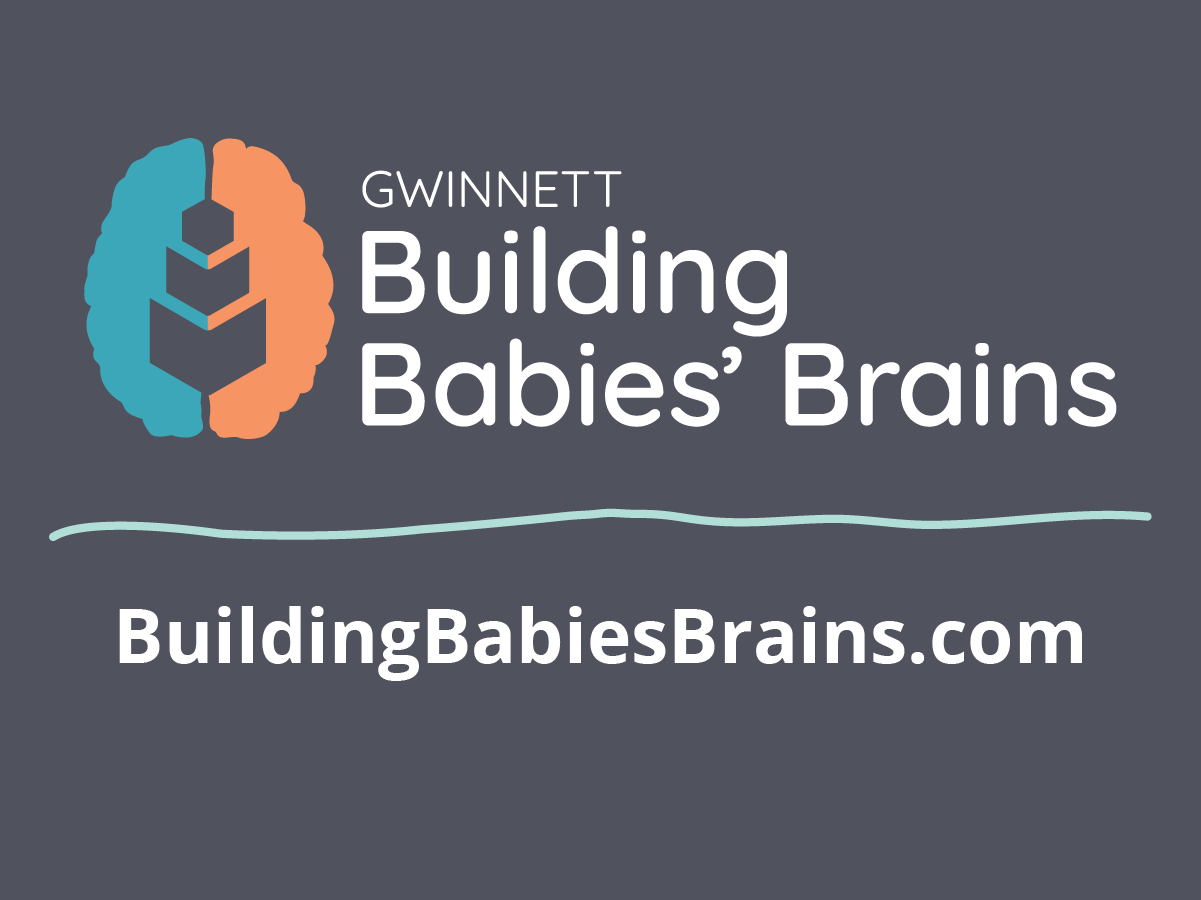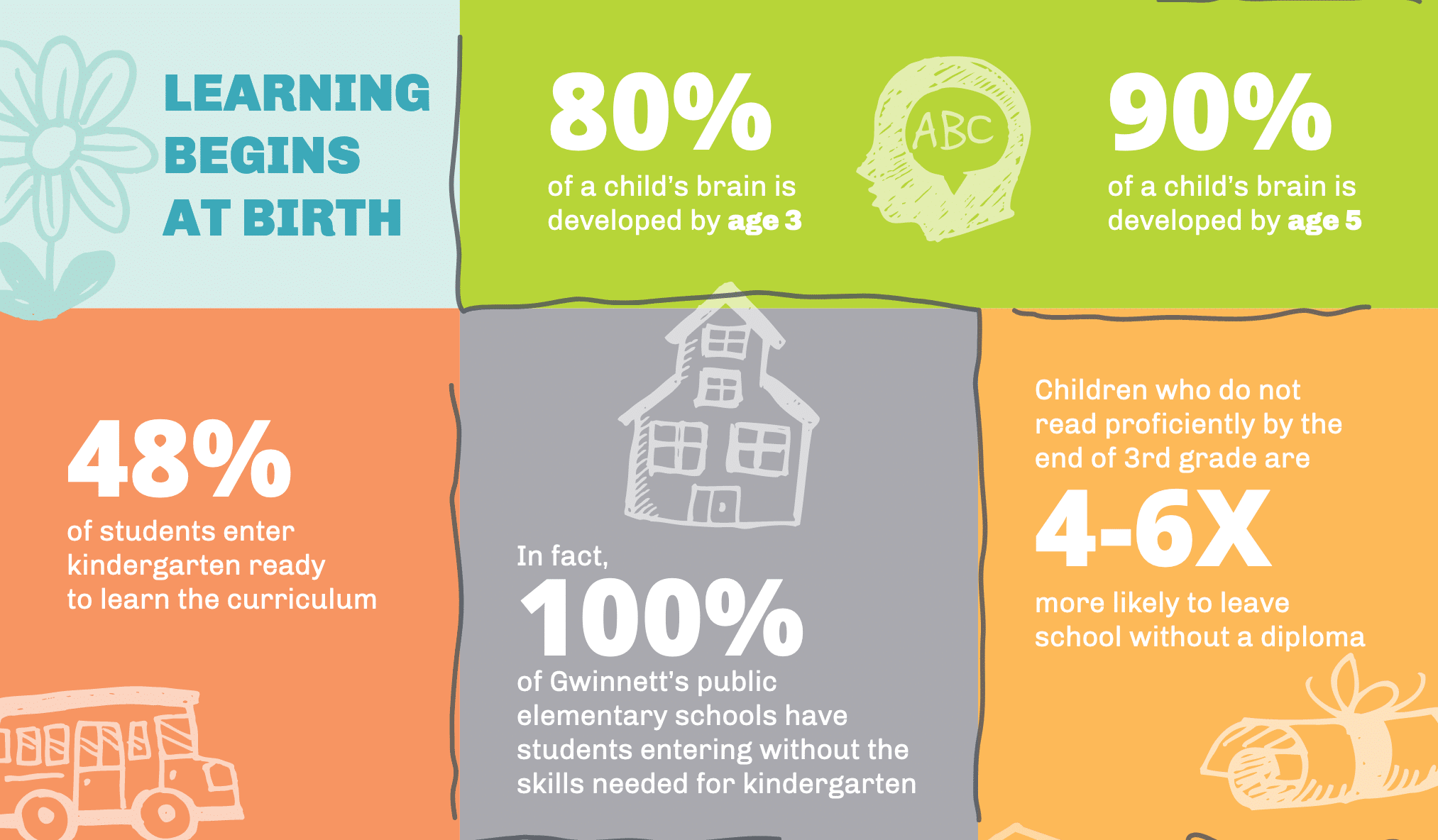Gwinnett Building Babies’ Brains: Helping All Children Thrive in Kindergarten

The first five years of life are critical to every child’s future, because a child’s brain is 90% developed by age 5. That’s why a group of community members, businesses, nonprofits, and educators in Gwinnett County have created Building Babies’ Brains, a comprehensive website with local resources and content that gives parents the tools they need to help grow their child’s brain.
Last year in Gwinnett County, over 52% of incoming kindergarteners weren’t ready for school according to the Gwinnett County Public Schools Kindergarten Readiness Entry Profile. More than 40 schools in the county had over 50% of students not ready to start their first day of kindergarten—and the benchmark of scoring is 70%.
“We have students in every elementary school not ready, with some schools having 80% entering school unprepared,” said Kim Holland, director of Early Learning and School Readiness for Gwinnett County Public Schools.
To address the impending kindergarten readiness crisis for over 60,000 children birth to age 5 in Gwinnett County, the Building Babies’ Brains team aims to ensure that all parents have access to the information and tools they need to be their child’s first and best teacher so that all children have access to high quality early learning at home or elsewhere.
“Early brain development is so essential, and parents’ role as teacher is one of the most important things they can do for their child,” said Holland. “Participating in simple activities like reading, singing, and talking with a child beginning at birth has a big impact—but many of our poorest communities believe that children don’t start to learn until they can talk.”
Brain research shows that over 1 million neural connections a second are being formed starting at birth. When a child enters kindergarten, 90% of their neural connections are already formed. These connections are formed and sustained based on the interactions the baby has with the adults around them. More positive interactions lead to more neural connections.

Early language exposure sets the foundation for cognitive ability, literacy, and school readiness—and it’s the strongest predictor of third-grade reading proficiency. Not every child is exposed to a rich language environment. Children from low-income families hear approximately 600 words every hour—1,400 fewer than children in higher-income families.
While the ultimate goal of thriving in kindergarten is the same for every student in Gwinnett County, the Building Babies’ Brains team recognizes that families want and need different types of support to reach that goal. In order to see progress on a county-wide scale, three key levers have been identified:
Community awareness: Children will succeed when the entire community rallies behind them to support their learning and development.
High-quality early learning resources and programs: Community awareness must be supported by early learning resources and programs that are available to families when and where they’re needed.
Collective approach to success: A network of organizations, institutions, and individuals will need to come together, with a focus on improving school readiness.
The Building Babies’ Brains team will continue their work to ensure that each child in Gwinnett County has the opportunity to thrive in kindergarten—so that every child can have a fair shot at becoming an educated and productive citizen.
For more information about Building Babies’ Brains Gwinnett, contact Kim Holland at 770-843-1459 or Kim.F.Holland@gcpsk12.org or John Upchurch at 404-408-4123 or johnupchurch@bellsouth.net.
Follow Building Babies’ Brains Gwinnett on Facebook and Instagram.
Contact:
Krystin Dean
GaFCP Communications Specialist
706-897-4711
krystin@gafcp.org
